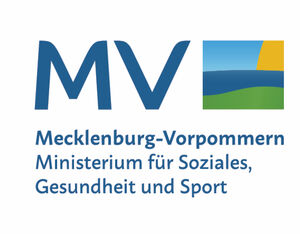Medical care / emergency numbers
In Germany everyone has the right to appropriate medical care – but how do I find a doctor? Whom can I contact in an emergency? And how does the German health system actually work? You can find the answers to many questions about the German health system and more detailed information on getting care by doctors near you (in the doctor’s surgery/as an outpatient) and in hospitals (as an inpatient) as well as in emergencies, on the website of the Federal Ministry of Health.
• Doctors / Care near you
You can usually choose which doctor you would like to treat you
• Hospitals / clinics
Some treatments and operations can only be performed in a hospital or clinic. There, doctors, nurses and other therapists will ensure that you receive the required intensive treatment. You can find hospitals and clinics on our map.
• Emergencies
After working hours, on public holidays or on a weekend, you can avail yourself of the many options available for medical assistance in Germany. Many hospitals have a casualty department/A&E. Local doctors will be on call:
If it is not possible to get to urgent medical care on your own, you can call the following telephone numbers:
• Emergency Medical Services: 112 or
• Poison Control Centre: 030 – 19240
• On-call medical service: 116 117
• Pharmacies also have a night or emergency service
It contains basic information on your health and the healthcare system, as well as what to do in the event of illness, or to prevent becoming ill. Further information includes questions about health insurance, preventive and early diagnostic examinations, and support services paid by long-term care insurance.
Medical care for adults
Many diseases are easily treatable if they are caught early. Early detection and preventive examinations for children and adults aid in successful treatment. Women and men can get a health check-up every three years. In addition, women and men have the right to regular examinations for the early detection of certain cancers. Health insurance companies pay for many kinds of preventive exams. Your doctor will be happy to advise you.
Screening exams for children
In Germany, children get uniform, legally mandated health examinations from birth to school age; these are known as the U1 to U9 examinations and the J1 examination. These examinations help to identify developmental disorders and diseases in children and to ensure that they get treated at an early stage. At the same time, parents are informed about how they can promote their child's development and avoid health risks. The examinations are scheduled to take place at certain times in your child’s development. During these specified developmental stages, the costs for the U examinations and the J1 examination are covered by health insurance. These examinations are voluntary. To promote your child's development, however, it is important to have the examinations done on a regular basis. Please make an appointment for a consultation with your paediatrician.
Vaccinate
Vaccinations are one of the most important and effective ways to protect your health. Modern vaccines are well-tolerated and protect against serious diseases. In Germany, specific vaccinations are recommended for infants, children, adolescents and adults. These are summarised in a vaccination calendar.
In addition, up-to-date information on vaccinations is always available at the website of the national vaccination campaign.
The vaccinations are administered by general practitioners and specialists, as well as by doctors in the regional health offices of the rural districts and cities.
The costs for vaccinations that are recommended in Germany are covered by the health insurance companies. Your doctor will be happy to advise you.
